The Staffordshire Hoard is truly one of a kind as the largest collection of Anglo-Saxon gold and silver found to date. There are around 4,000 items, most of which are military pieces.
The discovery of the Staffordshire Hoard came in 2009. A metal detectorist was scanning farmland in the village of Hammerwich in England when his detector signaled a find.
What was found buried in the soil turned out to be monumental. Over the following days, the metal detectorist began to pick up pieces of a collection that would later be known as the Staffordshire Hoard. He later contacted a finds liaison officer for the Staffordshire and West Midlands Portable Antiquities Scheme for further assistance, according to Ancient Origins.
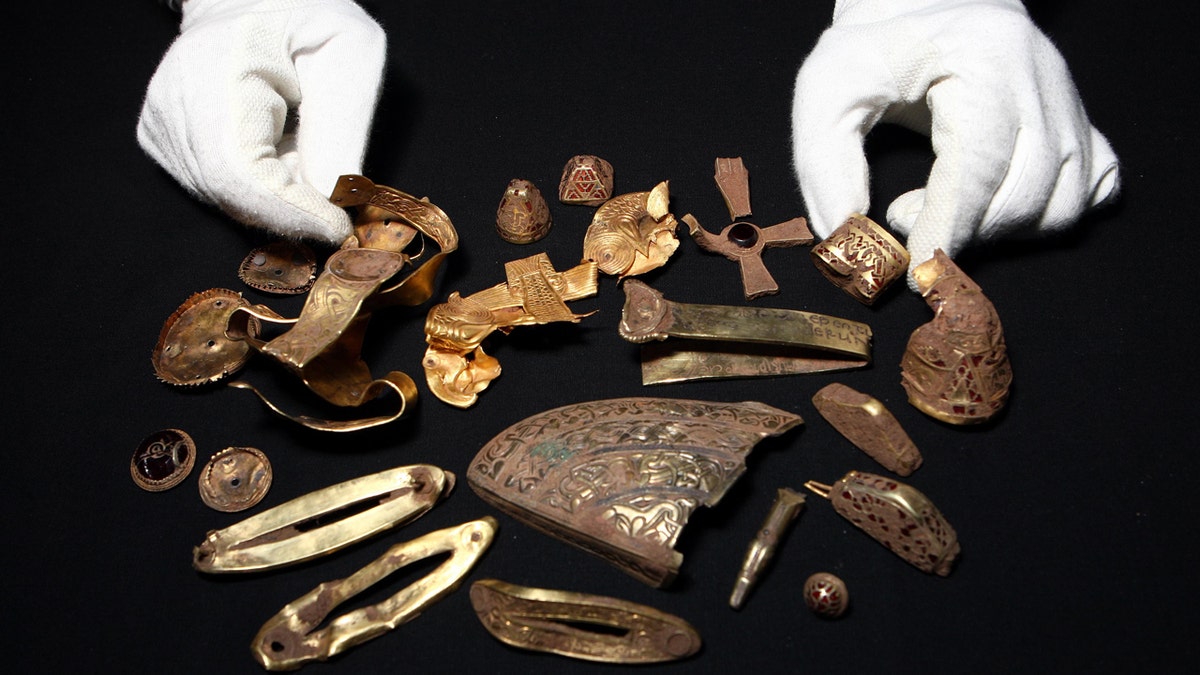
The Staffordshire Hoard is made up of around 4,000 ancient pieces dating back to the 7th century. (David Jones/PA Images via Getty Images)
COLLEGE STUDENT IN DENMARK USES METAL DETECTOR TO DISCOVER ANCIENT JEWELRY
With permission from the landowner, a full excavation was conducted. Birmingham Archeology later joined in to assist, according to the source.
After the items were collected, a 10-year conservation and research project was in pursuit. The findings of the project were published in 2019 in the book “The Staffordshire Hoard: An Anglo-Saxon Treasure” and online.
During this period, ancient objects found were carefully cleaned and x-rays were taken, according to Birmingham Museums.
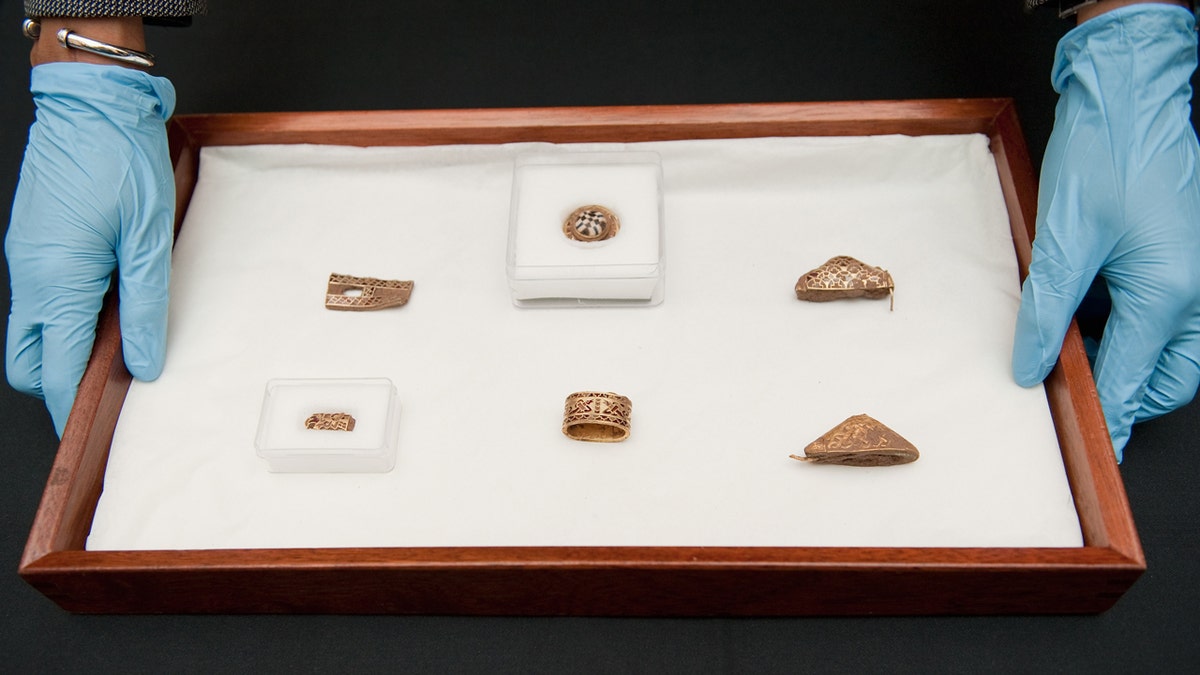
Following the excavation of the land that the ancient items were found on, they were carefully cleaned and researched. (Marco Secchi/Getty Images)
IRISH FARMER FINDS NEAR 60-POUND SLAB OF ANCIENT BOG BUTTER ON HIS LAND BY ‘PURE LUCK’
Another part of this effort was to begin matching fragments that belonged to the same object because many of the items were found in incomplete parts.
Through detailed research, there has been so much knowledge gained about this collection, including when it dates back to, but there are still questions unanswered.
Archaeologists believe the collection was buried during the 7th century (650-675 AD), according to Birmingham Museums.
Many objects that have been discovered from the time period have been jewelry, specifically brooches and pendants, according to the Stoke Museums.
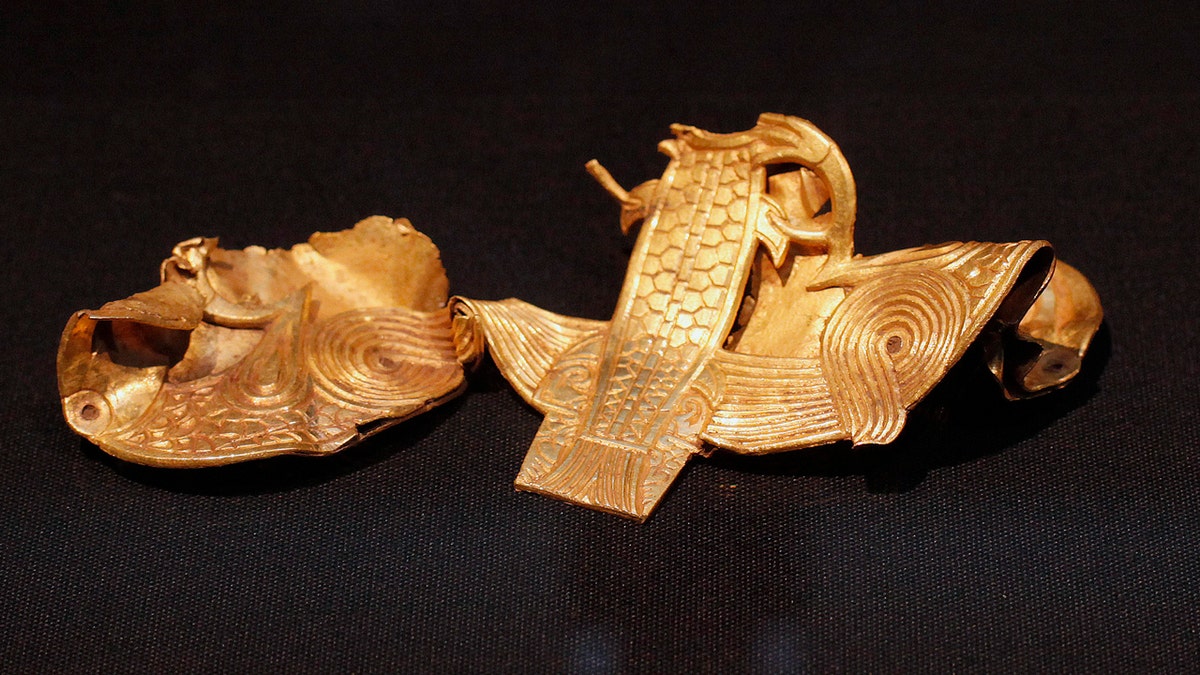
Most of the items part of the collection are gold. (SHAUN CURRY/AFP via Getty Images)
RARE ANCIENT CELTIC ARTIFACT IN POLAND, 2,300-YEAR-OLD METAL OBJECT EXCAVATED FROM CHARCOAL PIT
An element of the Staffordshire Hoard’s uniqueness is that it is mostly made up of war gear, according to Stoke Museums.
One of the Staffordshire Hoard’s most valuable items is an ancient war helmet. The helmet was far from complete when it was discovered because it was broken into 1,000 pieces, according to Stoke Museums. During the days when the helmet was completed, it likely sat atop the head of a king.
After months of research, there were two replicas of the helmet created, one of which is on display at the Potteries Museum & Art Gallery in Stoke-on-Trent and the other at Birmingham Museum and Art Gallery.
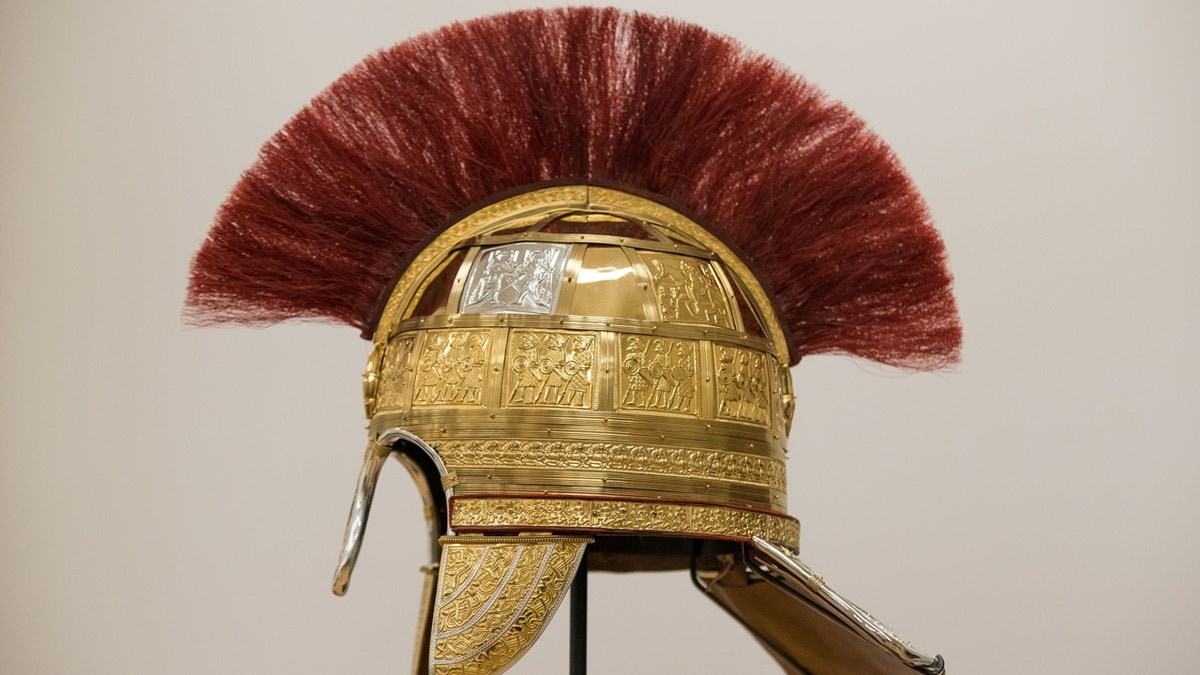
A replica of the gold helmet is on display at the Birmingham Museum & Art Gallery. (Aaron Chown/PA Images via Getty Images)
MOM, SONG DIG UP ANCIENT OBJECT OFTEN FOUND NEAR BURIAL GROUNDS WHILE GARDENING
Fragmented pieces make up the majority of the Staffordshire Hoard, which put together equals 700 items, according to Birmingham Museums. Of the items in the collection, the large majority are swords, according to the source.
In large part, the items are gold. Since gold doesn’t corrode in soil, the precious metal is able to stay well-preserved, according to the source. Around 150 of the items are silver.
Why the Staffordshire Hoard was buried in the first place is still a mystery, though experts have developed many theories. One is that the gear could have been buried as an offering to the gods, according to Birmingham Museums.
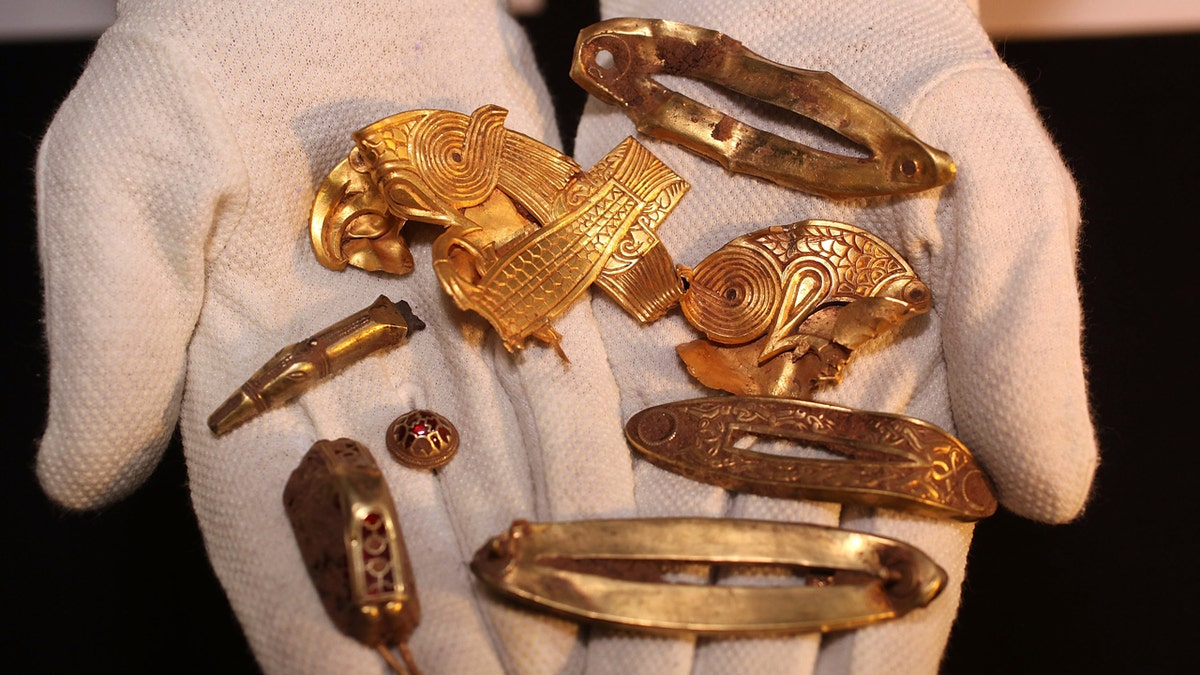
There is still a lot of mystery around the significant find, including why the items were buried. (Christopher Furlong/Getty Images)
CLICK HERE TO GET THE FOX NEWS APP
Today, visitors can see the Staffordshire Hoard at the Birmingham Museum & Art Gallery and the Potteries Museum & Art Gallery in Stoke-on-Trent.
